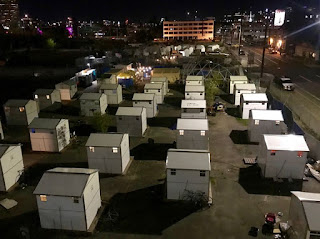Food Insecurity
Food insecurity is just one of the many stressors that contribute to the lives of individuals experiencing houselessness. Without a permanent residence the amount of work and planning it takes to find a meal is extremely difficult. Factors include; nowhere to safely store necessities (clothes, tent, etc) while procuring food, access to transportation to food banks and other resources, refrigeration, and ability to safely cook foods that need a heat source. If you’re experiencing food insecurity, resources in the Portland area are available below: Multnomah County Food Guide PDX Free Fridge Portland Backpack If you’re able to help please consider volunteering to put food bags together for Portland Backpack or find out where you can donate food via PDX Free Fridge . Post by Aaron Bergeson






